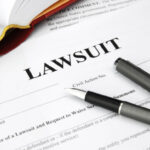The U.S. offshore drilling regulator Wednesday formally issued sanctions against BP and the major contractors involved in the 2010 explosion on the Deepwater Horizon rig that killed 11 workers and spewed more than 4 million barrels of oil into the Gulf of Mexico.
The newly formed Bureau of Safety and Environmental Enforcement filed 15 “incidents of noncompliance” (INCs) to the companies. It did not release details of how much the companies may face in fines.
By law, the companies face fines of up to $35,000 a day, per incident for the violations.
In its final report on the accident issued last month the Interior Department outlined infractions committed by the companies.
BP, owner of the ruptured Macondo well, received the lion’s share of the sanctions, with seven notices for violations ranging from failure to protect health and property to failing to keep the well under control at all times.
In a first for the department, BP’s contractors Transocean , which owned the Deepwater Horizon rig, and Halliburton , which carried out cementing on the well, also face sanctions.
The contractors each received four notices of violations, with Transocean accused of failing to properly maintain the rig’s blowout preventer and Halliburton accused of not properly cementing the well.
All three companies have 60 days to appeal the sanctions. The agency said it will consider imposing civil penalties for the notices once the appeal period has ended.
Any fines imposed by the drilling agency would be separate from the ongoing Justice Department lawsuits against BP and Transocean.
A Transocean spokesman said the company does plan to appeal its sanctions.
BP said it has taken steps to enhance safety and the sanctions show that its contractors also played a role in the spill.
“We continue to encourage other parties, including Transocean and Halliburton, to acknowledge their responsibilities in the accident,” BP said in a statement.
BP and its contractors are embroiled in various lawsuits blaming each other for the spill.
Halliburton did not immediately respond to a request for comment.
Traditionally, the department has only gone after well operators for rule infractions. But after last year’s spill, the department has asserted that it has authority to regulate contractors.
The decision to sanction Transocean and Halliburton reflects the “severity of the incident” and the department’s commitment to holding all parties accountable, the regulator said.
“The joint investigation clearly revealed the violation of numerous federal regulations designed to protect the integrity of offshore operations; these INCs are the next step in vindicating the regulatory program designed to protect the interests of the public,” BSEE Director Michael Bromwich said in a statement.
Executives from the three companies and officials from the drilling agency are set to testify at a House Natural Resources committee hearing on Thursday about the government’s probe of the Gulf spill.
Separately, the U.S. Chemical Safety and Hazard Investigation Board filed a civil action in federal court to enforce subpoenas issued to Transocean for its investigation of the drilling accident.
(Additional Reporting by Anna Driver and Bruce Nichols in Houston; Editing by David Gregorio and Bob Burgdorfer)
Was this article valuable?
Here are more articles you may enjoy.

 Travelers Survey: Distracted Drivers Making US Roads More Dangerous
Travelers Survey: Distracted Drivers Making US Roads More Dangerous  Property Restoration Industry: A Culture in Need of Repair?
Property Restoration Industry: A Culture in Need of Repair?  Oregon Schools Sued for $9M After Young Girl Allegedly Raped
Oregon Schools Sued for $9M After Young Girl Allegedly Raped  Vintage Ferrari Owners’ Favorite Mechanic Charged With Theft, Fraud
Vintage Ferrari Owners’ Favorite Mechanic Charged With Theft, Fraud 